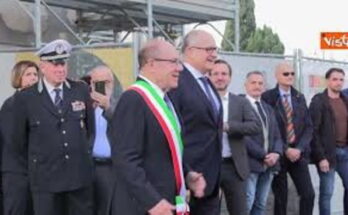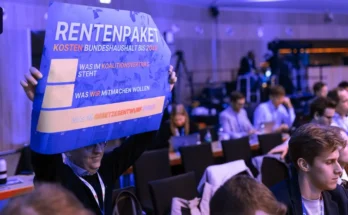«The paper mill is historic, since 1872 the mill has had different management over the years – said Tavella -. The last stage was liquidated in 2005: it was bought by a group of businessmen, partly from Milan, partly from the Brescia region and the company took the name of Pkarton spa. There was an investment of several million euros but then in June 2012 the company was liquidated: he remembers that a consortium appeared which later turned out to be fake, they seemed interested in the purchase and I myself arranged for a notary to put pen to paper, but they didn’t show up”. Then the low point was in January 2014, when bankruptcy was officially declared, with liabilities of around 50 million euros. From failure to recovery. «Liquidators – adds Tavella – would occasionally quip at us: ‘But why not just make it a cooperative?’. At first we laughed, then we thought about it too because we had an industrial plan.”
The rest is a great story of worker buyout. In August 2015, Cartiera Pirinoli restarted with 70 working members (compared to 152 employees when the company stopped in 2012): «The worst period for the paper factory but we managed to close the year with a turnover of 6 million euros – concludes Tavella -. Then we reached 13 million in 2016 and 35 million the following year. All thanks to the financing partner, Coopfond which is a joint institution associated with Legacoop and Cfi. Banca Etica was one of the first banks to provide us with the financial support necessary to mobilize credit.” Today the company has 20 million equity, 95 employees and 80 of them are partners.
Wbo Oblique Cable in Caivano (Napoli)
In Caivano, in the province of Naples, there are steel workers. This is the story of Italcables, a company that stopped due to the crisis in 2013 and after two years of struggle started again at Wbo Italcables, thanks to the 51 initial employees and the hard work of the current president of the cooperative Matteo Potenzieri, vice president Luigi Posillipo and commercial director Domenico Capone. The factory always produces steel cables for infrastructure such as bridges and viaducts.
«In 2008 – says Potenzieri – there were the first difficulties caused by the bursting of the financial bubble in the United States. The previous ownership tried to restructure and tried to resist but then in 2013 entered into an agreement with the creditors: since then the two main banks did not want to refinance the rebuilding and the factory stopped in January 2013″. Very complicated times, there was no money to buy steel, a raw material that represented 70% of the total costs. At that time the ongoing composition with creditors was liquidated and 51 of the initial 67 employees (45 workers and 6 officials) gave their lives to the cooperative. The employees defended and looked after plant and machinery for 2 years: they reached 1.2 million euros (paid 25 thousand euros each) to buy the company and bring new projects to life.
End of the problem? «No, because the funds collected were insufficient, there was still a big problem, there was no liquidity to buy steel – recalls Potenzieri -. At that time, meetings with Banca Etica, Coopfond of Legacoop Campania and Cfi were very important. We acquired the resources and started in 2015.” Today the steel workforce has increased: there are 63 employees, average turnover of about 30 million per year. «This year we suffered a little from the steel sector, from its expensive raw materials, from very strong competition from Asian countries», concludes Potenzieri. But anyone who has such a past should not be afraid.



